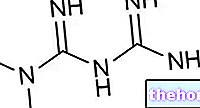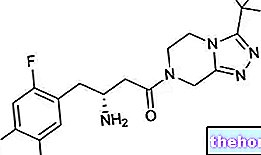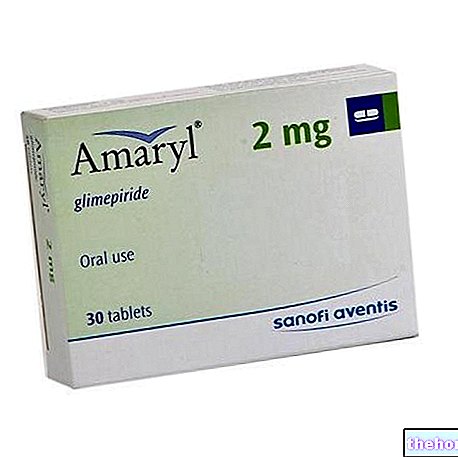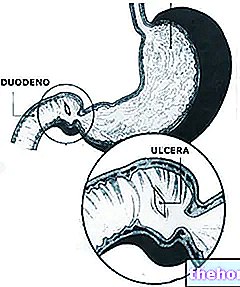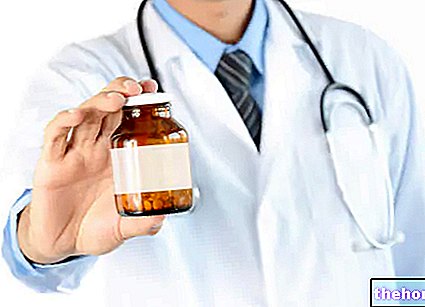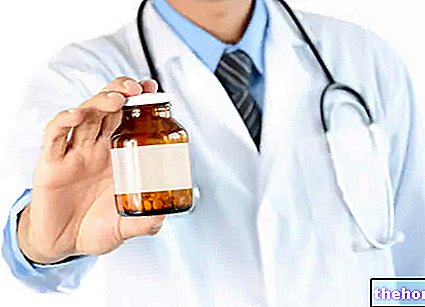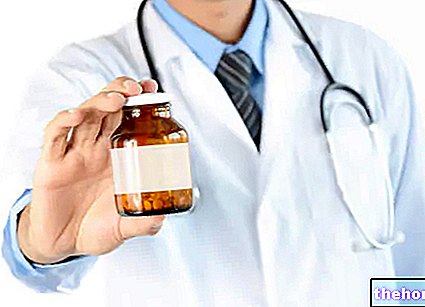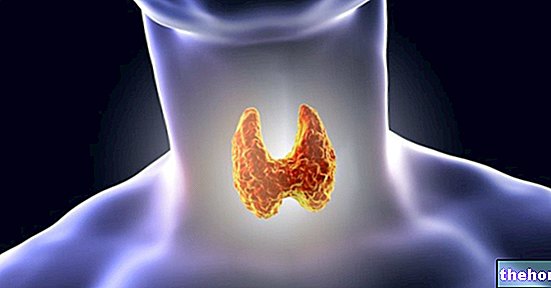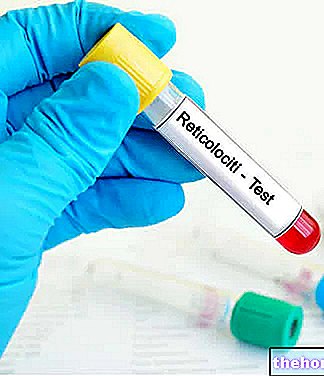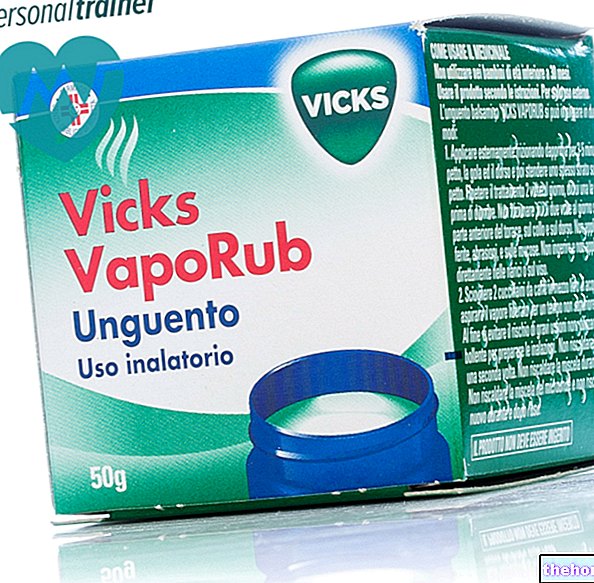PROTAPHANE ® a drug based on human isophane insulin
THERAPEUTIC GROUP: Human isophane insulin for injectable use - insulins and analogues

Indications PROTAPHANE ® - Human isophane insulin
PROTAPHANE ® is indicated in the treatment of insulin dependent diabetic disease and gestational diabetes.
PROTAPHANE ® Mechanism of Action - Human Isophane Insulin
The isophane insulin contained in PROTAPHANE ® is an analogue of human insulin obtained in the laboratory from Saccaromices Cerevisiae and complexed with protamine sulphate.
As is known, the pharmacokinetic properties of insulin are essentially associated with the route of administration and release of the drug, in this case they are dependent on the presence of protamine, and which allow the isophane insulin to act in about 90 minutes reaching the maximum activity between the fourth and the twelfth hour to extend up to the twenty-fourth hour.
In a very similar way to the endogenous hormone, exogenous insulin reaches insulin-sensitive tissues such as adipose and muscle tissue through the bloodstream, increasing the uptake and utilization of blood glucose, conveyed towards glycolysis, glycogenosynthesis and lipogenesis .
At the same time, the hypoglycemic effect of insulin is also expressed through the modulation of hepatic metabolic activities, useful for reducing the production and secretion of endogenous glucose.
Studies carried out and clinical efficacy
1. INSULIN THERAPY IN THE SECOND TYPE DIABETIC PATIENT
Diabet Med. 1994 Jul; 11: 551-7.
Insulin regimens for the non-insulin dependent: impact on diurnal metabolic state and quality of life.
Taylor R, Foster B, Kyne-Grzebalski D, Vanderpump M.
In the most severe cases of type 2 diabetes mellitus, therapy with oral hypoglycemic agents is not able to produce good glycemic control, exposing the patient to even serious risks. In this study it was shown how the administration of intermediate insulin such as isophane, can lead in a short time to good glycemic control by significantly reducing the concentrations of glycosylated hemoglobin.
2. MEDICAL DEVICES: ADVANTAGES AND DIFFICULTY ".
J Diabetes Sci Technol. 2010 May 1; 4: 652-7.
Assessment of the mixing efficiency of neutral protamine Hagedorn cartridges.
Kaiser P, Maxeiner S, Weise A, Nolden F, Borck A, Forst T, Pfützner A.
If the marketing of medical devices that are easy to use for the diabetic patient such as pens or pre-filled cartridges has greatly simplified the life of the diabetic patient, it is equally true that the incorrect preparation can alter the normal therapeutic properties of the drug, preventing good glycemic control. It is therefore useful to reiterate the importance of doctor-patient communication, necessary to optimize the efficacy of therapy.
3. INSULIN THERAPY AND INFLAMMATORY MARKERS
Basic Clin Pharmacol Toxicol. 2011 Apr 23.
Effects of Mealtime Insulin Aspart and Bedtime NPH Insulin on Postprandial Inflammation and Endothelial Cell Function in Patients with Type 2 Diabetes.
Bladbjerg EM, Henriksen JE, Akram S, Gram J.
It is known that meals, especially when excessive, can induce an inflammatory response at the intestinal level, in many cases impressive. it can however guarantee a significant reduction of inflammatory markers in the immediate post-prandial period.
Method of use and dosage
PROTAPHANE ® 100 IU / ml human isophane insulin for injection 3ml cartridges or 3ml pre-filled pens:
although an optimal therapeutic range between 0.5 - 1 IU / Kg die for diabetic patients of the first type and 0.3 - 0.6 IU / kg die for diabetic patients of the second type may be indicated, the correct dosage can only be formulated by the doctor based on the conditions pathophysiological conditions of the patient and his glycemic control.
PROTAPHANE ® can also be combined with regular or rapid insulin taken during main meals.
The injection of isophane insulin should be done subcutaneously at the level of the thigh or abdomen, preferably at scheduled times and repeatable daily.
PROTAPHANE ® Warnings - Human Isophane Insulin
Pharmacological therapy with insulin should be preceded and accompanied by periodic monitoring of glycemic values, the patient's state of health and his dietary habits.
In fact, it may be necessary, even during therapy, to adjust the insulin dosage, in order to ensure good glycemic control and avoid even serious metabolic imbalances such as hypoglycemic crises.
Furthermore, given the frequency of this collateral event, the patient should be able to recognize the warning symptoms in time and consequently resort to timely remedies capable of preventing the worsening of the clinical picture.
Episodes of hypoglycemia are often accompanied by a reduction in the patient's reactive and perceptive abilities, making the use of machinery and driving vehicles dangerous.
PREGNANCY AND BREASTFEEDING
Gestational diabetes is a condition that affects about 3% of pregnant women and which, if poorly compensated, can seriously compromise the development and health of the fetus.
Insulin represents today the only therapeutic support able to guarantee a good glycemic control whose therapeutic activity is well characterized.
Interactions
The concomitant use of oral hypoglycemic agents, octreotide, anti-MAO, beta blocking agents, ACE inhibitors, salicylates, alcohol and anabolic steroids could enhance the therapeutic effect of PROTAPHANE ® significantly increasing the risk of hypoglycemia.
On the contrary, the concomitant administration of oral contraceptives, thiazides, glucorticoids, thyroid hormones and sympathomimetics could reduce the hypoglycemic effect of isophane insulin, requiring an eventual dosage adjustment.
It is also useful to remember how sympatholytics can mask some important signs of hypoglycemia, increasing the risk of serious reactions.
Contraindications PROTAPHANE ® - Human isophane insulin
PROTAPHANE ® contraindicated in case of hypoglycemia and hypersensitivity to human insulin or its excipients.
Undesirable Effects - Side Effects
Clinical studies and careful post-marketing monitoring show that insulin therapy can be associated with the incidence of both local and systemic side episodes.
Among the local adverse effects it is in fact possible to describe some of a transitory nature such as redness, pain and itching at the injection site and others with a chronic course such as lipoatrophy at the inoculation site.
Gastrointestinal disorders, visual problems and systemic hypersensitivity reactions, represent some of the less frequent and more transient systemic reactions, while the risk of hypoglycemia and related symptoms is decidedly more important.
Note
PROTAPHANE ® sold only under medical prescription.
PROTAPHANE ® falls within the doping class: Hormones and related substances (prohibited in and out of competition)
The information on PROTAPHANE ® - Human Isophane Insulin published on this page may be out of date or incomplete. For a correct use of this information, see the Disclaimer and useful information page.

